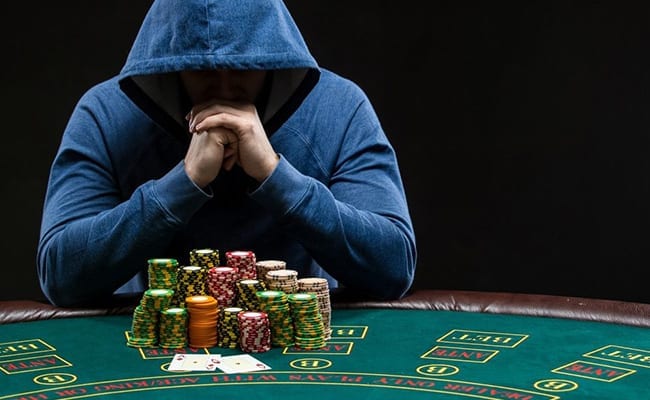
The excitement and anticipation of hitting it big draws people to gambling at Quatro Casino online. However, for some, the allure becomes an obsession that takes over their lives. Gambling addiction, also known as compulsive gambling, involves being unable to control urges to gamble despite the toll it takes. Understanding why gambling pulls people in and how to recognize when it becomes unhealthy can help those struggling get their lives back.
What Fuels Gambling Addiction
Gambling provides a thrill and rush of adrenaline. Games like slot machines and lotteries play into cognitive biases people have around randomness and skill. They offer continued positive reinforcement and near wins that compel people to keep playing. This makes them particularly addictive. Additionally, several factors can increase someone’s vulnerability to developing a gambling problem:
- Genetics - Research indicates that some people may have a genetic predisposition to addictive behaviors. This can make them more susceptible to compulsive gambling.
- Underlying mental health issues - Conditions like depression, anxiety, ADHD, and bipolar disorder are associated with higher rates of gambling addiction. Gambling can become a way to self-medicate symptoms.
- Trauma - Past emotional, physical, or sexual abuse can increase addiction risks as gambling becomes an escape.
- Personality traits - Impulsivity, competitiveness, and risk-taking tendencies may lead some to chase the high of big wins.
While gambling itself activates the brain’s reward system, these factors help explain why some have more difficulty resisting cravings and urges to gamble.
Recognizing the Signs of Problem Gambling
Gambling addiction is progressive, meaning it tends to get worse over time without intervention. Here are some red flags that indicate compulsive gambling:
- Gambling more money or frequently to get the same thrill
- Feeling restless or irritable when not gambling
- Lying to loved ones about time and money spent gambling
- Relying on others for bailouts due to gambling losses
- Failed attempts to cut back or quit gambling
- Obsession with gambling and reliving past wins
- Neglecting responsibilities to gamble instead
As the addiction advances, people may start chasing losses, borrowing or stealing money to gamble, and alienating loved ones. Warning signs in children and teens include falling grades, stealing, and skipping school to gamble.
The Costs of Compulsive Gambling
Gambling addiction can negatively impact finances, relationships, work or school, and mental health:
- Financial devastation - The most obvious consequence is monetary loss, which can range from a few thousand dollars to hundreds of thousands depending on severity. Debt, bankruptcy, and poverty are common ripple effects.
- Relationship damage - Lies, volatile behavior, lack of trust and support, and neglect of family can seriously strain marriages and parent-child bonds.
- Work or education impairment - Job loss, demotions, and dropping out of school are possible when gambling hijacks time, focus, and priorities.
- Mental health decline - Anxiety, depression, and even suicidal thoughts may emerge as the addiction and loss of control worsen.
Left unchecked, gambling addiction can upend every area of someone’s life. But recovery is possible with proper treatment and a support system.
Overcoming a Gambling Problem
Admitting an addiction exists is the first step toward change. From there, options include:
- Self-exclusion - People can ban themselves from casinos and online gambling sites. This creates a roadblock during moments of weakness.
- Therapy - Individual counseling helps identify triggers and develop healthier coping strategies. Group support can reduce feelings of isolation.
- Medication - Antidepressants and mood stabilizers may be prescribed to manage underlying conditions contributing to compulsive gambling.
- Financial counseling - Money management assistance can help people restructure finances, address debts, and rebuild stability.
- Gamblers Anonymous - This 12-step program based on Alcoholics Anonymous uses peer support networks. Members have sponsors and work through recovery steps.
- Residential treatment - For severe cases, inpatient rehab provides intensive therapy and a change of environment away from triggers.
Though challenging, even long-time gamblers can achieve abstinence, repaired relationships, and financial recovery through these options.
Gambling Addiction Impacts and Treatment Options
|
Type of Impact |
Prevalence Data |
Treatment Options |
|
Financial |
- 20% of problem gamblers file for bankruptcy - Average gambling debt is $55,000 |
- Financial counseling - Debt restructuring plans |
|
Relational |
- 56% of problem gamblers report relationship trouble - 10-17% of children with problem gambling parents suffer abuse |
- Individual and group therapy - Marriage counseling |
|
Occupational |
- 33% of problem gamblers have job loss due to gambling - Over 50% have missed work due to gambling |
- Workplace support programs - Career counseling |
|
Mental Health |
- 50% of problem gamblers experience depression - 20% have suicidal thoughts |
- Medication management - Individual and group therapy |
Gambling may seem like a harmless pastime. However, for some, it morphs into a dangerous obsession. Being attuned to the red flags and costs of compulsive gambling makes it possible to intervene before the addiction causes permanent devastation. Through professional treatment and social support, even long-time gamblers can regain control, restore stability, and lead a fulfilling life.